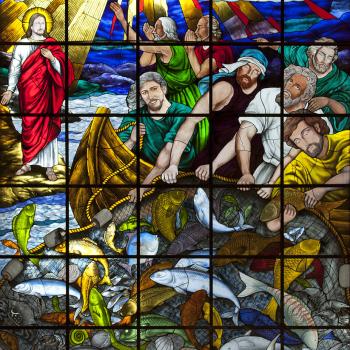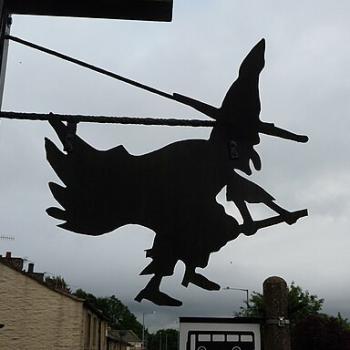Lectionary Reflections
Isaiah 60:1-6
Epiphany Sunday
January 5, 2014
And a bright Epiphany to you! This is the Sunday when finally we are asked to sing "We Three Kings of Orient Are," though truth be told we have already heard it since October 15 in the mall and have sung it in eager anticipation in our services during Advent. But now, at last, Matthew's kings (not specifically three, you note, and "wise men" rather than kings) show up at the birthplace of Jesus and shower him with their treasures, gold, frankincense, and myrrh. Good old Matthew is ever eager to beat us over our spiritual heads with his certain conviction that all that transpires in the life of Jesus has been predicted (well, at least anticipated) long ago in the Hebrew Bible. Hence, Isaiah, always a ready source of Matthew's preaching, once again foretells the events that followed the holy birth.
The author of Isaiah 60, the so-called III-Isaiah (or IV?), announces, as he regularly does, that Israel's greatest days lie ahead, even though the realities of a post-exilic Israel are less than salubrious. Late in the 6th century B.C.E., around 515 or so, the temple is rebuilt by the returning exiles from Babylon, probably aided by some of those who remained in the ruined land during that exile. Yet, that temple was only a shadow of its former glory, and the hopes of the returnees and their struggling compatriots perhaps faded in its tiny and rather pathetic shadow. Did III-Isaiah sing this oracle before that new temple arose or after its somewhat sad construction? We cannot know, but we can know that the presence of the temple, however paltry it was, did not affect the glorious singing of the prophet. As we all know, realities rarely get in the way of prophetic song. Prophets march to an unseen orchestra, and any real disharmonies be damned!
The promise of Isaiah is that the dispersed Israelites in whatever exiles they have suffered will soon be returning to the land of promise. We should remember that Babylon was not the only place of exile after the 6th-century destruction of Jerusalem. At the fifth cataract of the Nile River in southern Egypt at a place called Elephantine there was a thriving Jewish community early in the 5th century. Also, the important Jewish community of Alexandria, Egypt surely began to form at this same period. Hence, when Isaiah promises a return of exiles to Israel, he must have had in mind all those who once called the Promised Land their home.
"Stand and shine," he says, "for your light has come; the glory of YHWH has risen above you!" (Is. 60:1) The day of YHWH has dawned, sings Isaiah, and that means that the way back home is now clear and well lighted for all. "Yes, darkness covered the earth, a thick gloom darkened the people, but YHWH now rises above you, God's glory appears above you" (Is. 60:2). Isaiah uses the important word "glory" (kavod) twice for emphasis. It is YHWH's glory that Moses demands to see on the sacred mountain of Sinai (Ex. 33:18), but YHWH only allows the lawgiver to see YHWH's "goodness" (33:19) instead. The glory of YHWH is not shown even to the one to whom YHWH speaks face to face. But now, says Isaiah, YHWH's very glory has appeared in the sky as a light for all returning exiles. Little wonder that Matthew speaks of the miraculous star that lights the way of the Magi to the Christ child. Here is his iteration of the glory of YHWH that shines to light the way for the exiles' return.
However, Isaiah's vision of the return to Israel is not limited to Israelite exiles only. "Nations will come to your light, and kings to the brightness of your dawn" (Is. 60:3). Along with the vast hordes of returning exiles will be found other people from other nations; even foreign kings will join the throng. Indeed, the multitude, led by the shining glory of YHWH, will especially include the young sons and nursing daughters of the exiles, specially noted, one assumes, because the youth must return if there is to be a future for the people. Those kings and foreigners will not come empty-handed. They will be leading a huge number of fine Midianite camels, along with the excellent camels of Ephah and Sheba. And the camels will be carrying among their wares gold, the universal coin of every land, and frankincense, costly perfume from exotic places whose worth was little less than gold. And the importance of the camels themselves must not be missed. Camels had by the 11th century B.C.E. become the quintessential beast of burden for all the peoples of the desert, due to its wonderful ability to walk seven days without additional water as well as to present a formidable phalanx of a charging army during times of war. The gifts of gold, frankincense, and camels were rich gifts indeed!
But the more important part of this portrait of Israelites and foreigners, laden with rich gifts, wending their way to Jerusalem, is to be found elsewhere. Matthew captured this aspect of Isaiah's picture by his employment of foreign wise men coming under the guiding light of the star to worship the child. This crucial idea is that the child's birth for Matthew, and the huge mixed wave of peoples coming to Israel in Isaiah, is precisely for everyone, not just for Israelites and not just for certain believers. The birth of Jesus is for all people, not merely for Christians and certainly not merely for just those Christians who profess to believe certain things. Isaiah and Matthew agree that the glory of YHWH and the birth of the child under the shining star is a universal sign of a God whose way is love and peace for the entire world.





